70+ Must-Have AI Tools for Marketers in 2026: Expert Picks for Every Need
Artificial intelligence has reshaped marketing. Marketers are now constantly looking for tools that can boost efficiency, streamline content creation, and supercharge SEO. AI marketing tools offer a competitive edge— helping you automate routine tasks, optimize your campaigns, and even generate creative ideas on the fly. Whether you’re a small business owner or part of a larger marketing team, these tools can save time and deliver proven results.
In this guide, we’ll explore a wide range of AI tools for marketers across key marketing domains. I’ve structured the list into separate sections so you can easily pick the right tool for every aspect of your marketing strategy—from content creation to customer support.
So dive in, and let’s explore how these tools can help you seize the moment and transform your marketing game!
Table of Contents
AI Tools for Content Marketing & SEO

As we all say, content is king, and SEO is the kingdom. AI tools for content marketing & SEO are designed to help marketers craft engaging, search-friendly content. They analyze search trends, competitor strategies, and even your own historical data to recommend improvements that can elevate your rankings on Google.
BLACKBOX AI is an AI code assistant that generates, debugs, and explains code across 20+ languages. Useful for marketers who need to implement tracking scripts, build custom analytics dashboards, or automate data pipelines without a dedicated developer.
Although there is a learning curve, once you get comfortable, these tools become indispensable in optimizing content and beating the competition.
- Surfer SEO: Surfer SEO is a game-changer for content optimization. It dissects your pages and suggests tweaks—be it keyword placement or content length—to help improve your Google rankings. With subscription plans that suit freelancers to agencies, it offers a balanced mix of depth and usability. Its dashboard might seem dense initially, but the insights are clear once you dig in.
- MarketMuse: MarketMuse excels in planning and optimizing your content strategy. By analyzing competitors and content gaps, it guides you on what to write next. Its premium pricing might not suit every budget, but the comprehensive analysis and data-driven recommendations justify the investment for serious marketers.
- Brandwell: This tool automates the generation of SEO-optimized blog posts. Ideal for businesses that need to churn out quality content fast, Brandwell’s AI helps maintain a consistent voice. Although it may sometimes require human tweaking, its ease of use is a strong plus.
- Originality AI: Originality AI checks for plagiarism and ensures content originality. It’s a handy tool when you’re juggling multiple pieces of content and need to guarantee uniqueness. While the interface is straightforward, occasional false positives can be a minor setback.
- Writer.com: Tailored for teams and content marketers, Writer.com helps ensure brand consistency. Its real-time suggestions and style guides are invaluable, though the cost can add up for larger teams.
- Undetectable AI: Designed to rewrite AI-generated content, this tool makes your copy sound human. It’s especially useful when you need to adjust the tone and ensure natural readability. The pricing is competitive, making it a smart choice for content repurposing.
- Hemingway App: Hemingway App hones your content for clarity and conciseness. While not as feature-rich as some competitors, its simple interface helps ensure your writing is punchy and easy to read—a must for on-the-go marketers.
- Grammarly: A staple for many writers, Grammarly checks grammar, spelling, and style. Its suggestions help refine your text, though the premium version can feel a bit pricey for some.
- Headlime: Specializing in landing page copy, Headlime offers AI-generated drafts that convert. It’s an excellent choice for marketers looking to boost lead generation, even if you need to polish the final version.
- Clearscope: Clearscope analyzes top-ranking pages to recommend improvements. Its data-driven approach has helped many marketers align their content with user intent. The pricing model is subscription-based, which might be a hurdle for small blogs.
- ChatGPT: Beyond content creation, ChatGPT assists in keyword research and automation. Its versatility is a standout, though its outputs sometimes need human fine-tuning to match your brand’s voice.
- Claude: Claude is known for creative content generation. It’s ideal for brainstorming ideas and drafting creative pieces. While it sometimes leans toward verbosity, the creative insights it offers can be very inspiring.
- Articoolo: Articoolo generates blog posts and articles in minutes. Perfect for when you’re in a rush, it still requires editorial oversight to ensure quality. Its affordability makes it attractive for quick drafts.
- RankSense: By analyzing historical SEO data, RankSense predicts trends to help you stay ahead. Although it has a technical interface, predictive analytics are a boon for data-driven marketers.
- CognitiveSEO: CognitiveSEO dives deep into organic search ranking, offering insights on link profiles and on-page factors. It’s comprehensive but may be overwhelming for beginners.
- RankRanger: Optimized for SERP performance, RankRanger offers dynamic content generation and real-time tracking. Its flexible pricing and robust data make it popular among SEO professionals.
- GrowthBar: GrowthBar combines keyword research with competitive analysis. It’s user-friendly and ideal for startups, though its simplicity might not satisfy more advanced users.
- SpyFu Keyword Research: SpyFu offers insights into competitor keywords, making it invaluable for both SEO and PPC campaigns. Its subscription plans provide solid value, despite a learning curve in the analytics section.
- KWFinder: With a focus on localized keyword research, KWFinder delivers actionable metrics and search volumes. Its pricing is reasonable, though some niche markets may find the data limited.
- Keyword Tool: This tool generates long-tail keyword suggestions using Google autocomplete. It’s incredibly useful for uncovering hidden opportunities, even if you need to cross-check some suggestions.
- Keyword Keg: Aggregating data from multiple search engines, Keyword Keg gives you diverse keyword ideas. While it offers a breadth of data, some users may find the interface a bit cluttered.
Each of these tools brings something unique to the table. They’re designed to be the secret sauce behind high-performing content marketing strategies. By combining these insights with your own expertise, you can easily optimize your online presence.
AI Tools for Copywriting & Content Creation
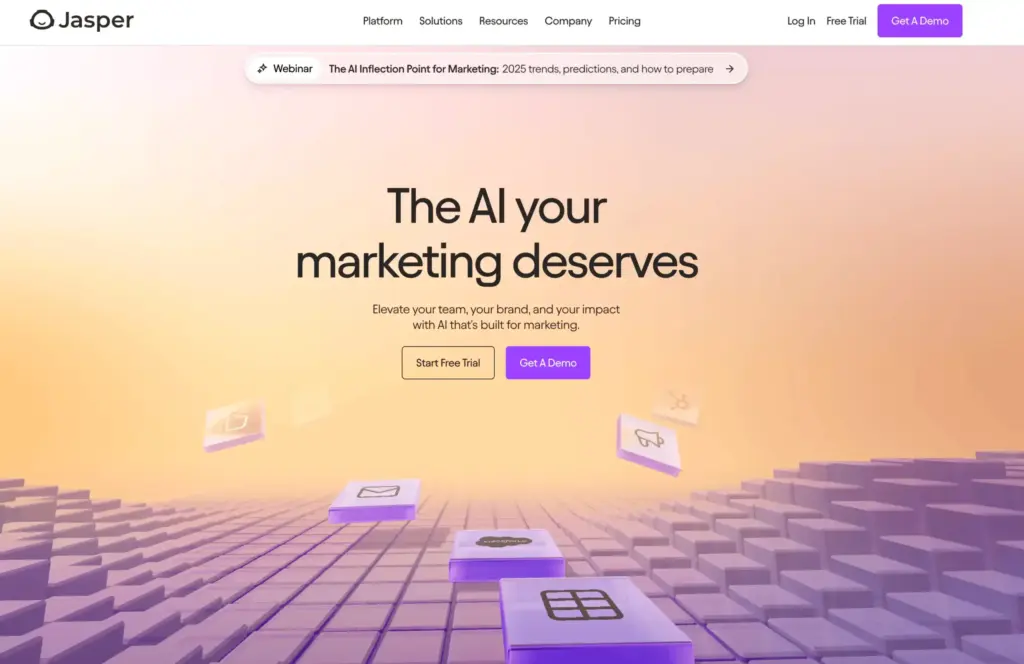
Also see: 10 Best AI Writing Tools and Software for Content Marketers
Copywriting is an art—and with AI by your side, it’s evolving into a science. Whether you need a catchy ad copy, engaging blog posts, or compelling email content, AI-driven writing tools are stepping in to help streamline the creative process. In my experience, having a dependable AI partner has enhanced productivity and even sparked fresh ideas when I encounter a creative block.
These tools do the heavy lifting by providing instant suggestions, drafting outlines, and generating complete articles. They are especially helpful for teams managing multiple projects. Although the outputs typically require a human touch for that final polish, the time saved in ideation and drafting is a significant advantage.
- Jasper AI: Jasper AI is well-known for its copywriting prowess. It crafts blogs, ads, and emails with impressive speed and SEO finesse. Its pricing is tiered, making it accessible for both freelancers and agencies. Though sometimes the output can be generic, a quick edit transforms it into the conversion-focused copy.
- CopyAI: CopyAI generates marketing copy, social media posts, and even creative ads in seconds. Its friendly interface is easy to navigate, and it offers a free trial so you can test its capabilities. While its suggestions are usually on point, occasional edits are necessary to capture the right tone.
- ChatGPT: Apart from content research, ChatGPT is a robust tool for ideation and drafting. Its versatility allows for rapid content creation, although the outputs may need refining for brand consistency. The tool’s adaptability makes it a favorite for many marketers.
- Writer.com: Returning in this category, Writer.com is perfect for teams needing a consistent voice across multiple documents. It offers style guides and in-app suggestions that maintain your brand’s tone. While it can be pricey for larger teams, the quality and consistency it delivers often justify the cost.
- Hemingway App: Although primarily an editor, the Hemingway App plays a crucial role in content creation by ensuring clarity and conciseness. It highlights lengthy sentences and complex words, pushing you toward more readable content. While it doesn’t generate content per se, its editing prowess is essential.
- Lexica Art: Lexica Art is a neat tool that helps generate visually appealing blog thumbnails and graphics. It’s especially handy when you need eye-catching visuals without hiring a designer. Its creative suggestions add that extra visual spark to your content.
- PhotoRoom: For removing backgrounds and enhancing images, PhotoRoom steps up. It’s great for social media posts and blog imagery. The tool is intuitive and quick—ideal for marketers on a tight schedule—even if it sometimes struggles with complex backgrounds.
- Crayo: Crayo specializes in short-form video generation. In an age where video content reigns supreme, this tool helps create engaging clips that capture attention. Its pricing is competitive for the value it provides, though detailed customization options can be a work in progress.
- Claude: Claude shines in creative writing. It’s adept at generating structured content with a creative twist. While it can occasionally produce overly detailed drafts, a bit of editing can yield content that’s both engaging and on-brand.
- Articoolo: Articoolo rounds out this category with its fast article generation capabilities. It’s perfect for brainstorming or drafting ideas quickly. Although it sometimes requires human refinement, its affordability and speed make it a valuable tool for busy copywriters.
Together, these tools create a powerful arsenal for anyone serious about content creation. They reduce the time spent staring at a blank screen, allowing you to concentrate on strategic storytelling and data-driven copy enhancements.
AI Tools for Image & Video Content

Visual content plays a crucial role in today’s marketing strategies, especially for marketers aiming to create impactful images, logos, and graphics. With consumers increasingly attracted to engaging visuals, AI-powered tools are revolutionizing how marketing professionals generate high-quality visual assets quickly and efficiently. These innovative solutions not only save time but also provide marketers the flexibility to experiment with diverse styles and creative concepts—without the need for extensive design expertise.
Fotor is a browser-based photo editor and design tool with AI-powered background removal, image enhancement, and batch editing. Marketers use it for quick social media graphics, product photo touch-ups, and banner creation without opening Photoshop.
CapCut is a free AI video editor with auto-captions, background removal, and text-to-video generation. The CapCut for Business plan adds brand kits and team collaboration. CapCut templates have ready-made formats for TikTok, Reels, YouTube Shorts, and LinkedIn.
OpenArt AI is an AI image generator that supports Stable Diffusion, DALL-E, and Midjourney-style models in one platform. You get fine-tuning on your own images, inpainting, and outpainting. Check OpenArt AI pricing for credits and plans.
In this section, you will discover a range of visual tools tailored for marketers, from text-to-image generators to graphic design platforms specifically designed for creating logos and brand imagery. These tools enable you to produce everything from striking graphics to dynamic multimedia content that enhances engagement on social media and other marketing avenues. I’ve observed that integrating even one of these AI tools into your workflow can significantly elevate your visual marketing efforts and give you a competitive advantage.
- Stable Diffusion: This AI text-to-image generator transforms your ideas into stunning visuals. It’s perfect for creating branding assets or conceptual art for your campaigns. Although it may require a bit of tweaking, the creative potential is enormous.
- Midjourney: Midjourney excels at generating high-quality images based on simple prompts. It’s ideal for marketers who need consistent, creative visuals on a regular basis. While its outputs sometimes lean toward the abstract, they can be a great source of inspiration for further design work.
- Synthesia: Synthesia is a standout for text-to-video generation. It creates engaging video content and even virtual presenters from your script. The pricing is on the premium side, but the ability to produce professional-quality videos without a production team is a game-changer.
- Pika Labs: Pika Labs focuses on generating short-form video assets. It’s great for creating dynamic content for social media stories or ads. Although it may not have the deep customization of full-scale video editors, its speed and ease of use make it very appealing.
- Lumen5: Lumen5 turns your articles into video content with minimal effort. By automatically syncing your text with relevant visuals, it offers an accessible way to diversify your content offerings. Its straightforward interface is a bonus, even if advanced users might crave more control.
- TikTok Creative Assistant: This tool is designed for creating eye-catching TikTok videos. It guides you through the process of producing content that resonates with the platform’s audience. Though tailored for TikTok, its creative tips can be applied to other short-form video content as well.
- Opus Clip: Opus Clip specializes in converting long-form videos into engaging, bite-sized clips. It’s particularly useful when you want to repurpose webinars or interviews into shareable social media content. While it sometimes requires manual adjustments, its ability to save editing time is impressive.
By harnessing these AI tools, you can elevate your visual content strategy without needing to invest heavily in design resources. They empower you to test new ideas, create visually compelling campaigns, and ultimately, drive engagement across digital platforms.
AI Tools for Audio & Podcasting
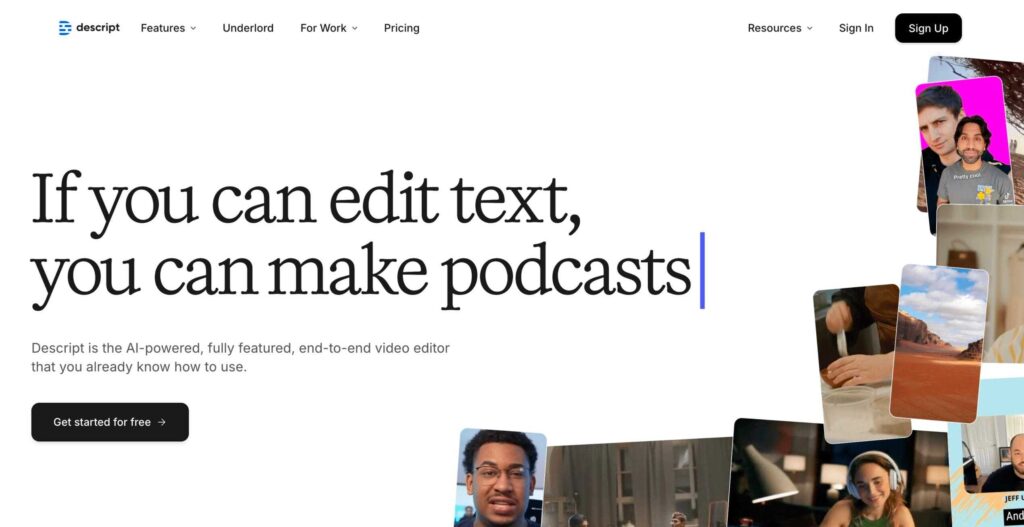
Audio content—especially podcasts—presents a remarkable opportunity for marketers looking to promote their products. In an era where multitasking is the norm, audiences appreciate content they can engage with seamlessly on the go. AI tools designed for audio and podcasting are essential for marketers; they not only assist in transcribing interviews but also streamline the editing process, ensuring your audio files are polished to perfection. With these tools, your brand’s message can resonate powerfully with your target audience.
Krisp removes background noise from calls and recordings in real time. The AI Meeting Assistant transcribes calls, generates summaries, and creates action items automatically. I use it on every client call. Krisp pricing starts free for 60 minutes/day.
I’ve witnessed how strategic enhancements in audio editing can significantly boost listener retention, which is crucial for successful product promotion. Whether you’re an established marketer or venturing into podcasting for the first time, leveraging the right AI tools can elevate your recordings and help you create professional-grade podcasts that effectively showcase your products.
- Descript: Descript transforms editing into a text-based process. Simply edit the transcript to refine your audio. It’s both innovative and user-friendly, though perfectionists might occasionally need to double-check the auto-edited sections.
- Riverside: Designed for podcasters and video creators, Riverside ensures high-quality recording even during remote interviews. Its interface is intuitive, and the quality of the final product often exceeds expectations. The investment can be worth it for those serious about audio content.
- LALAL.AI: LALAL.AI uses advanced algorithms to separate audio tracks and reduce noise. It’s ideal for cleaning up recordings and ensuring that your podcast sounds professional. While it might not replace manual editing entirely, it’s a fantastic time-saver.
- Speechactors: This tool offers realistic text-to-speech capabilities, making it useful for creating voiceovers or enhancing your podcasts. The natural-sounding outputs can add personality to your episodes, even if some minor edits are sometimes required for the perfect tone.
These audio tools are designed to help you focus on your message rather than getting bogged down in tedious editing tasks. Whether you’re transcribing interviews or adding professional voiceovers, these solutions can boost both productivity and quality.
AI Tools for Social Media & Branding
Social media is where brands come to life, and AI is transforming how we manage our online presence. From scheduling posts to analyzing trends, these tools aid in monitoring, creating, and engaging with your audience across various platforms. I’ve observed that with the right AI support, even a small team can sustain a vibrant social media presence without feeling overwhelmed.
Vista Social is an AI-powered social media management platform that handles publishing, engagement, analytics, and listening across all major platforms. Its AI assistant helps you generate captions, find optimal posting times, and analyze competitor performance, all from one dashboard starting at $15/month.
These AI-powered platforms analyze audience behavior, track brand reputation, and even propose content ideas based on trending topics. The convenience of scheduling and automation allows you to concentrate more on strategy and less on micromanagement.
- Hootsuite: Hootsuite streamlines social media management by scheduling posts and tracking performance. Its dashboard is robust, and while the premium version might seem steep, its comprehensive analytics make it a favorite among professionals.
- Brand24: Brand24 offers real-time monitoring of brand mentions and social sentiment. It’s excellent for keeping a pulse on what people say about your brand. Although it occasionally picks up noise, its alerts are invaluable for crisis management.
- Influencity: This platform uses AI to connect you with the right influencers for your campaigns. It’s especially useful when you need to expand your reach quickly. The pricing reflects its advanced features, but the ROI can be significant.
- TopicMojo: TopicMojo is a handy tool for unearthing content trends and social media insights. It guides you on what topics are gaining traction, which can be a huge boost when planning your next campaign—even if the data sometimes requires additional context.
- Google Trends: A free yet powerful tool, Google Trends shows what’s hot in real time. It’s indispensable for staying on top of market trends, though its data might require further analysis for deep insights.
- SparkToro: SparkToro provides detailed audience insights and customer research. It’s particularly useful when you’re fine-tuning your brand’s messaging. Its interface is user-friendly, making complex data more accessible.
- Answer Socrates: This tool uncovers the most commonly searched questions online, helping you craft content that directly addresses your audience’s needs. While it might generate a high volume of data, its simplicity in filtering relevant topics is a major asset.
These social media tools help you maintain a robust online presence, ensuring that your brand remains engaging, responsive, and relevant. They combine data-driven insights with automation, giving you more time to connect with your audience and build lasting relationships.
AI Tools for Marketing Analytics & Automation
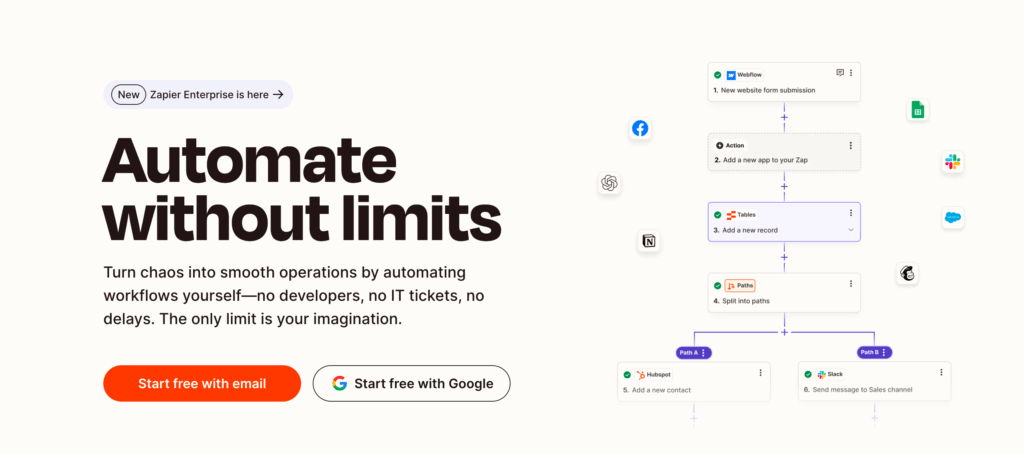
Data serves as the backbone of effective marketing decisions. AI tools in this domain assist in tracking user behavior, automating workflows, and transforming raw data into actionable insights. With numerous metrics to keep an eye on, these tools convert complex data into intuitive dashboards and reports.
I’ve seen how automation tools like Zapier and Drift can save hours of manual effort, enabling you to concentrate on strategy instead of repetitive tasks. While some platforms present steep learning curves, their potential to revolutionize your marketing operations is undeniable.
- Zapier: Zapier connects your favorite apps and automates workflows seamlessly. It’s ideal for tasks like moving data between platforms without manual input. The pricing scales with usage, making it accessible for both small and large operations.
- FullStory: This analytics tool captures every user interaction on your site, helping you identify friction points. It provides detailed heatmaps and session replays, though some users may find the volume of data overwhelming at first.
- Seventh Sense: Seventh Sense optimizes your email marketing schedules using AI. It analyzes engagement data to pinpoint the best times to reach your audience. While the interface may seem technical, its insights are crucial for improving campaign performance.
- Replo: Replo is an AI-driven landing page builder for eCommerce sites. It speeds up the creation of high-converting pages. The pricing is competitive, though advanced customization options might require a learning period.
- Albert.ai: Albert.ai handles digital advertising and campaign management. It uses AI to optimize ad spend and target the right audience segments. Despite its robust capabilities, new users may need some time to fully harness its power.
- Chatfuel: Chatfuel simplifies chatbot creation for marketing and sales. It’s perfect for businesses looking to automate customer interactions. Its ease of integration is a plus, even if customization can sometimes be limited.
- Userbot.ai: This tool focuses on automating conversation management. It helps you maintain engaging, real-time chats with website visitors. While it’s intuitive, some users might need to tweak responses to suit their brand tone.
- Mixpanel: Mixpanel offers advanced behavioral analytics to track customer interactions. Its data helps refine user experiences, though the wealth of metrics can be a bit overwhelming for beginners.
- Amplitude: Amplitude dives deep into customer journey analysis. It’s designed for marketers who want to understand the full customer lifecycle. Although it comes with a steep learning curve, its insights are invaluable for strategic decisions.
- Kissmetrics: Kissmetrics focuses on tracking customer behavior over time. Its detailed reports help you understand what drives conversions. While the tool is powerful, its interface may require some time to master.
- Gong: Gong leverages AI to analyze sales calls and team communications. It provides actionable insights to improve communication and sales efficiency. Even though it might be seen as complex, its benefits for improving team performance are significant.
- Outreach: Outreach transforms sales data into actionable insights. It helps streamline communication and follow-up processes. Though it might seem like a big investment, many teams find the increased efficiency worth it.
- Drift: Drift’s chatbot solutions facilitate real-time customer engagement. Its automation capabilities are ideal for lead generation and support, even if occasional manual intervention is required to fine-tune interactions.
- Google Optimize: This free tool allows you to run A/B tests to refine your website’s user experience. It’s straightforward but may require integration with Google Analytics for deeper insights.
- Optimizely: Optimizely offers real-time campaign adjustments through A/B testing. It’s perfect for marketers looking to fine-tune their strategies on the fly. Its advanced features can be overwhelming, but the results are often well worth the effort.
- Crazy Egg: Crazy Egg provides heatmaps and conversion rate insights. It’s great for identifying where users click and where they drop off. While the visual data is compelling, some users may wish for more granular controls.
These tools can transform your data into clear, actionable strategies. By automating routine tasks and delivering data-driven insights, they allow you to optimize your marketing funnel from start to finish.
AI Tools for Email Marketing & Lead Generation
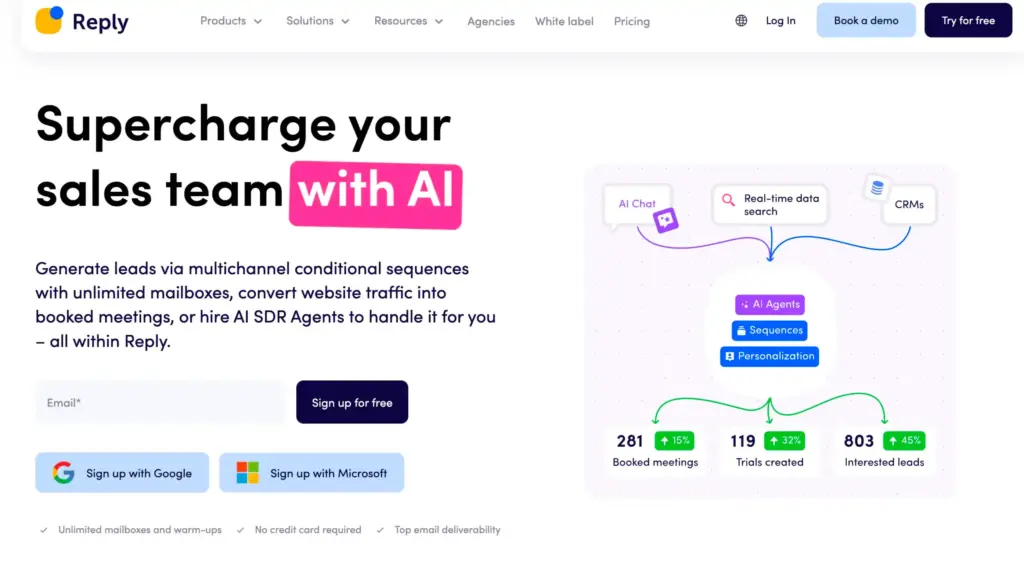
Email marketing remains the backbone of a successful digital strategy, and with AI, it’s evolving into an indispensable asset businesses can’t afford to overlook. Imagine automating responses and cleaning email lists effortlessly—these innovative tools empower marketers to cultivate leads and drive conversions with unprecedented ease. From my own experience using these tools, I can confidently say that even minor adjustments in automation can yield remarkable boosts in open rates and overall engagement.
AI-driven email marketing tools not only analyze user behavior but also optimize sending times and craft personalized content tailored to your audience’s preferences. This ensures your emails are not just received, but welcomed—timely and relevant. While it’s true that every tool has its quirks, whether it’s a somewhat clunky interface or restrictions in free plans, the overwhelming benefits of these tools far outweigh these minor inconveniences. Don’t let your competition outpace you; embrace AI in your email marketing today!
- Reply.io’s AI Sales Email Assistant: This assistant automates email responses, ensuring your leads get prompt attention. It’s ideal for busy sales teams, although it sometimes requires manual tweaking to perfect the tone.
- Browse AI: Browse AI automates web scraping and data extraction, helping you gather crucial lead information. Its pricing is competitive, though extracting complex data might need some configuration.
- Algolia: Algolia powers search and recommendations on your website. It’s perfect for improving user experience and engagement, even if its integration requires a bit of technical know-how.
- Visitor Tracking: This tool monitors user behavior on your website. It provides real-time data on visitor interactions—an essential asset for targeted email campaigns. While it may lack some advanced analytics, its simplicity is a plus.
- WP 301 Redirects: For WordPress users, this plugin manages redirects efficiently. It’s a subtle yet important tool for maintaining SEO integrity, although it might require occasional manual updates.
- WP Video Magic: WP Video Magic integrates video content seamlessly into your site. It’s great for engaging visitors, even if it occasionally needs customization to match your brand’s style.
- Pin Generator: This tool automates Pinterest marketing, generating content ideas and scheduling pins. While it’s still growing in features, early adopters appreciate its simplicity and potential.
- Semrush Persona: Integrated with Semrush, this tool helps build detailed buyer personas. Its insights are invaluable for tailoring your email marketing strategies, though it might be an extra cost on top of a Semrush subscription.
- NeverBounce: NeverBounce cleans your email lists by removing invalid addresses. This helps maintain high deliverability rates, even if the cleaning process occasionally flags some false positives.
- ZeroBounce: Similar to NeverBounce, ZeroBounce validates emails to reduce bounce rates. It offers flexible pricing, though some users might wish for more detailed reporting.
- Brevo: Brevo automates your email workflows, ensuring that each message reaches the right audience at the right time. Its intuitive design is a bonus, even if some advanced features require a learning curve.
- Drip: Drip is focused on automating email workflows and marketing campaigns. Its robust features help nurture leads effectively, though the setup can be time-consuming.
- Pardot: Pardot streamlines campaign workflows for B2B marketers. Its integration with Salesforce is a major plus, even if it comes with a premium price tag.
- Marketo: Marketo optimizes marketing workflows with AI-driven insights. It’s a favorite for larger organizations, though smaller teams might find it a bit overwhelming.
- Sprinklr: Sprinklr uses AI to enhance decision-making and productivity across your campaigns. Its comprehensive platform might be more than some need, but its power is unmatched for those ready to scale.
By automating repetitive tasks and personalizing outreach, these tools help you generate leads and build lasting relationships with your audience. They’re designed to make your email marketing as effortless and effective as possible.
The Semrush Content Marketing Platform uses AI to audit existing content, find topic gaps, and optimize for search intent. Pair it with the full Semrush suite and you get keyword research, competitive analysis, and content optimization in one workflow. Try the Semrush free trial to test the AI features.
AI-Powered Research & Search Tools
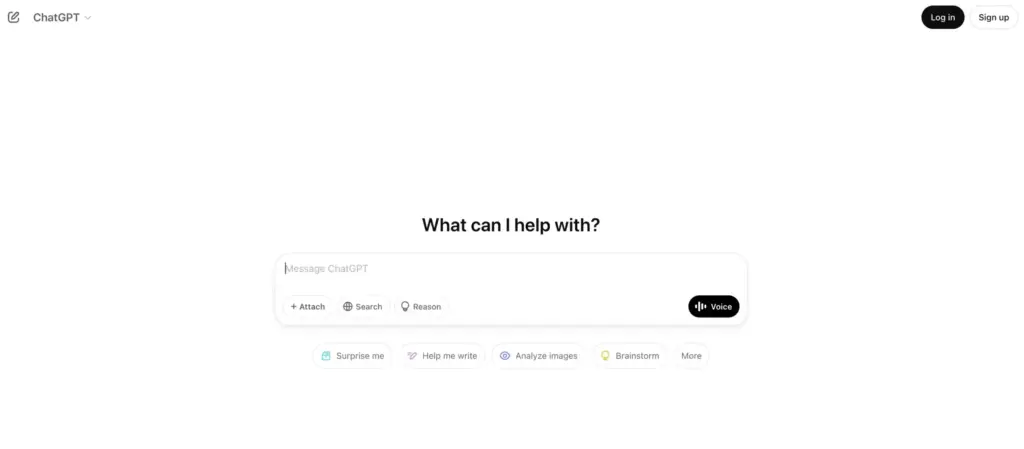
Good research forms the backbone of any successful campaign. AI-powered research tools speed up the data gathering process and ensure that your insights are grounded in the latest trends and academic research. These tools sift through mountains of data and return concise, relevant findings that can shape your strategy.
Gamma generates polished presentations, documents, and web pages from a prompt. Paste your blog outline and it creates a branded deck in seconds. I have used it for client pitch decks and it genuinely saved hours compared to PowerPoint or Google Slides.
- ChatGPT: Beyond drafting content, ChatGPT serves as an excellent assistant for research and ideation. It can help you brainstorm topics and even summarize complex ideas. While it may not replace academic databases, its speed and versatility are truly impressive.
- Reddit: Reddit is a treasure trove of user-generated content and insights. Its community-driven discussions provide real-world perspectives, even if the quality of information can vary widely.
- Consensus: Consensus acts as a search engine for research papers, delivering science-backed insights quickly. It’s especially useful for marketers looking to ground their claims in solid evidence, though its interface is more technical.
- Gemini (formerly Bard): Backed by Google Search, Gemini offers insights and research in a conversational format. It’s great for quickly answering questions, even if some responses need further verification.
- Milled: Milled helps you research email newsletter content by aggregating examples from top campaigns. It’s a useful source of inspiration, though you might need to sift through the volume of data to find the gems.
- Perplexity AI: Perplexity AI delivers search results with cited sources, lending credibility to your research. While it sometimes returns too much data, the fact-checking aspect is a significant bonus.
These research tools empower you to make informed decisions and back your marketing strategies with credible data. They streamline the process of content creation, ensuring that your insights are both timely and accurate.
AI Tools for Customer Retention & Support
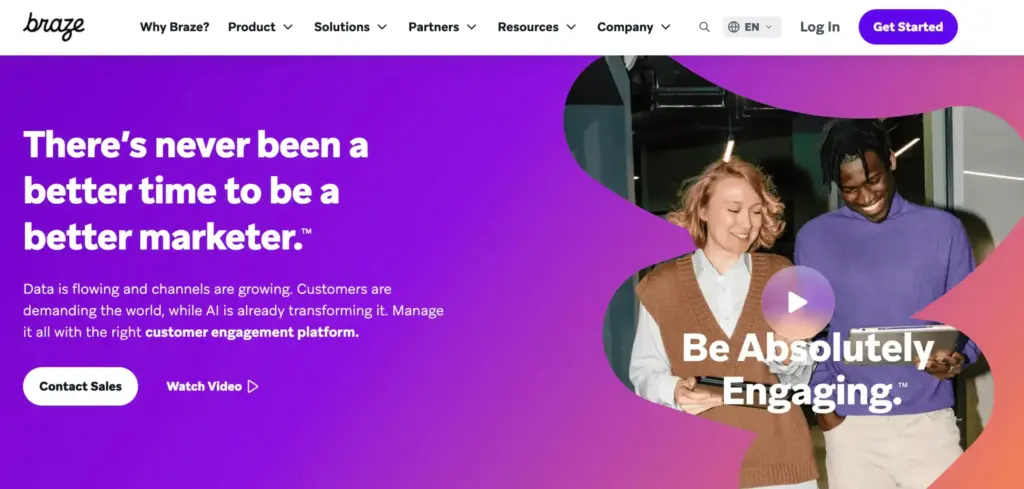
Customer retention is just as important as acquisition. AI tools for customer support help ensure that your audience feels valued and heard—whether through chatbots, personalized messaging, or proactive engagement. In my experience, even small improvements in response times and personalized interactions can lead to stronger customer loyalty.
These tools automate support tasks, analyze customer behavior, and provide actionable insights to reduce churn. While some may seem impersonal at first, the advanced algorithms are designed to mimic human interaction effectively, making customers feel understood.
- Braze: Braze personalizes customer experiences by delivering targeted messages based on user behavior. Its dynamic approach makes every interaction feel custom-tailored, though the depth of features can sometimes be overwhelming.
- ChurnZero: ChurnZero is designed to reduce customer churn by tracking usage patterns and customer feedback. It offers deep insights, but you may need to invest time in learning the interface.
- ManyChat: ManyChat automates social media chats to keep your customers engaged 24/7. Its friendly interface is a hit, although the limited customization options might require occasional manual tweaks.
- Zendesk: Zendesk streamlines customer support through AI-powered ticketing and automation. Its comprehensive platform is trusted by many, even if the pricing might be a barrier for startups.
- Drift: Drift offers real-time chatbot engagement that can handle a range of customer queries. It’s proven to boost engagement, though the automated responses sometimes need a human touch for complex issues.
- Botsify: Botsify lets you build custom chatbots for your brand. It’s user-friendly and ideal for scaling support, even if some advanced integrations can be challenging to set up initially.
By leveraging these tools, you can ensure that your customers receive prompt, personalized support—helping build lasting relationships and reducing churn.
AI-Powered Scenario Planning & Simulations
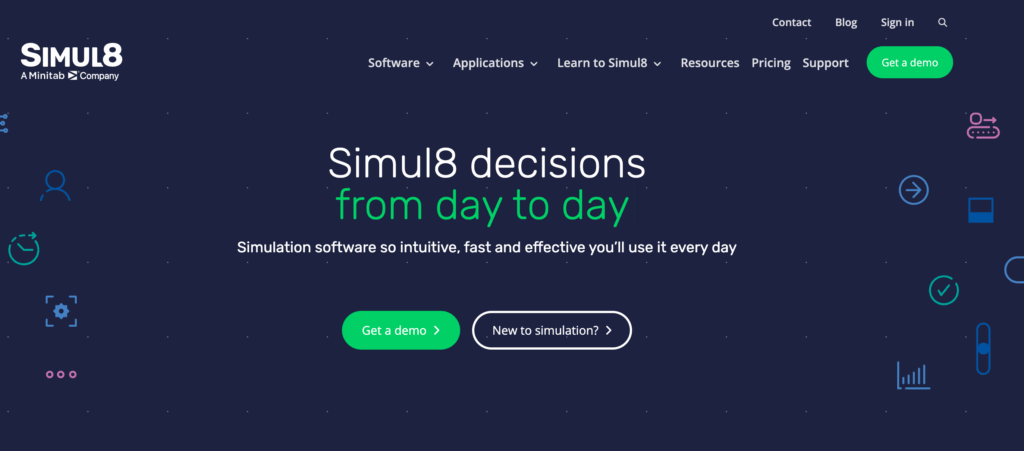
Forecasting and planning are critical to long-term success. AI tools for scenario planning and simulations help you visualize future outcomes based on current trends. They’re particularly useful for testing marketing strategies before rolling them out on a large scale.
These tools allow you to simulate different scenarios—from market changes to customer behavior shifts—so you can adjust your strategy accordingly. While the complexity of these simulations might seem daunting, even a basic understanding can provide a significant competitive advantage.
- Wolfram Alpha: Wolfram Alpha uses AI to crunch numbers and generate predictive models. It’s a trusted resource for scenario planning, though its interface may appear technical at first glance.
- Simul8: Simul8 helps you run simulations for various business scenarios. It’s great for stress-testing your marketing strategies, even if setting up the simulations requires a bit of time.
- AnyLogic: AnyLogic leverages AI to predict future scenarios with impressive accuracy. While it’s aimed at professionals with complex needs, its outputs can offer clear guidance on strategic decisions.
These scenario planning tools are your secret weapon when it comes to making informed, data-driven decisions. By simulating various outcomes, you can adapt your strategy to ensure long-term success—even in a rapidly changing market.
Conclusion
Embracing AI tools in your marketing strategy is no longer optional—it’s essential. From optimizing your content for SEO to automating customer support, the tools in this guide provide proven solutions to many common challenges marketers encounter. They streamline workflows, deliver data-driven insights, and allow you to focus on creative strategy and relationship-building.
While every tool comes with its own set of quirks, the key is to test a few and determine which ones align with your goals. Some tools may require a steeper learning curve, but the long-term benefits in efficiency and performance are undeniable. Remember, even the best AI tools are most effective when combined with human insight and creativity.
I hope this guide empowers you to explore the realm of AI-driven marketing. Whether you’re a startup or an established brand, there’s something here to enhance your campaigns. Stay curious, experiment boldly, and always pay attention to the latest trends—because in the fast-paced world of digital marketing, having the right tool at the right time can make all the difference.
Feel free to bookmark this guide and refer back to it whenever you’re ready to upgrade your marketing tech stack. Here’s to making smarter, faster, and more impactful marketing decisions with the power of AI!
For Amazon sellers, Sellzone (by Semrush) uses AI to optimize product listings, track keyword rankings, and analyze competitor pricing. It is the closest thing to an SEO tool for Amazon product pages.